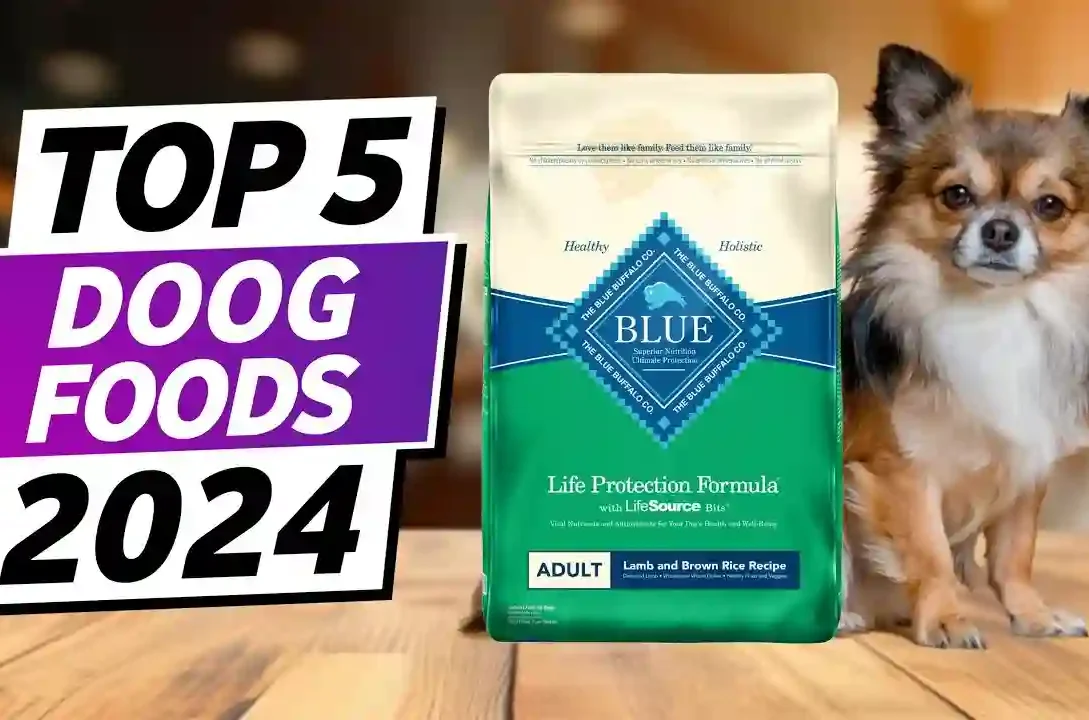A dog’s digestive system is at the core of its overall health, and when digestive issues arise, it can impact the dog’s well-being and quality of life. Dogs with sensitive stomachs often experience symptoms like vomiting, diarrhea, or flatulence, making dietary adjustments crucial for their comfort. In this article, we’ll explore the importance of selecting the right dog food for sensitive stomachs, understanding the causes of digestive sensitivities, and providing gentle nutrition to promote optimal digestive health in our canine companions.
Understanding Digestive Sensitivities in Dogs:
- Common Symptoms of Sensitive Stomachs: Dogs with sensitive stomachs may exhibit various symptoms, including frequent vomiting, diarrhea, gas, bloating, or signs of discomfort. These symptoms can be indicative of underlying digestive sensitivities that require attention.
- Causes of Digestive Sensitivities: Digestive sensitivities in dogs can stem from various factors. Common culprits include food allergies, intolerances to specific ingredients, abrupt diet changes, or underlying gastrointestinal conditions. Identifying the root cause is essential for effective dietary management.
Selecting the Right Dog Food for Sensitive Stomachs:
- Limited Ingredient Diets: Limited ingredient diets (LID) are designed to minimize the number of ingredients in the food, making it easier to identify and eliminate potential allergens. These diets often feature a single protein source and a limited selection of easily digestible carbohydrates.
- Novel Protein Sources: Introducing novel protein sources that the dog has not been exposed to before can be beneficial for dogs with food sensitivities. Novel proteins, such as venison, duck, or lamb, may be less likely to trigger allergic reactions or sensitivities.
- Digestible Carbohydrates: Dogs with sensitive stomachs may benefit from easily digestible carbohydrates, such as rice or sweet potatoes. These ingredients provide a source of energy without placing additional strain on the digestive system.
- Probiotics and Prebiotics: Probiotics and prebiotics promote a healthy balance of gut bacteria, aiding in digestion and nutrient absorption. Dog foods containing these components can contribute to a more robust digestive system and may be beneficial for dogs with sensitive stomachs.
- High-Quality, Natural Ingredients: Opting for dog foods with high-quality, natural ingredients is crucial for digestive health. Avoiding artificial additives, preservatives, and fillers can reduce the risk of triggering sensitivities and promote overall well-being.
- Avoiding Common Allergens: Common allergens for dogs include wheat, soy, corn, and certain proteins like beef or chicken. Choosing dog foods that exclude these potential allergens can be instrumental in managing sensitive stomachs.
Benefits of Dog Food for Sensitive Stomachs:
- Improved Digestive Comfort: The primary benefit of dog food tailored for sensitive stomachs is the improvement of digestive comfort. These formulations aim to provide easily digestible nutrients, reducing the likelihood of gastrointestinal upset and associated symptoms.
- Reduced Allergic Reactions: By eliminating common allergens and incorporating novel protein sources, dog food for sensitive stomachs helps reduce the risk of allergic reactions. This is crucial for dogs with food allergies or intolerances.
- Balanced Nutrition: Sensitive stomach formulations are designed to offer balanced nutrition, ensuring that dogs receive the essential vitamins, minerals, and proteins needed for overall health. This is achieved through careful ingredient selection and nutritional testing.
- Prevention of Gastrointestinal Upset: The gentle nature of these dog foods helps prevent gastrointestinal upset, making them suitable for dogs prone to digestive sensitivities. Consistent feeding of a well-tolerated diet can contribute to long-term digestive health.
Considerations When Choosing Dog Food for Sensitive Stomachs:
- Veterinary Consultation: Before making significant changes to a dog’s diet, especially for addressing digestive sensitivities, it is crucial to consult with a veterinarian. A vet can assess the dog’s specific condition, recommend appropriate dietary adjustments, and guide the transition.
- Gradual Transition: Dogs can be sensitive to sudden changes in their diet. When transitioning to a new dog food for sensitive stomachs, do so gradually over 7-10 days to allow the dog’s digestive system to adjust. Sudden changes may lead to gastrointestinal upset.
- Monitoring the Dog’s Response: Once the dog has been transitioned to the new diet, closely monitor their response. Pay attention to changes in behavior, stool consistency, and overall well-being. If any issues arise, consult with a veterinarian to determine if further adjustments are needed.
- Addressing Underlying Health Issues: While diet plays a significant role in managing sensitive stomachs, it’s essential to address any underlying health issues that may contribute to digestive sensitivities. Regular veterinary check-ups can help identify and address these issues.
Popular Dog Food Brands for Sensitive Stomachs:
- Hill’s Science Diet Sensitive Stomach & Skin: Hill’s Science Diet offers a Sensitive Stomach & Skin formula designed to promote digestive health and address skin sensitivities. The formulation includes easily digestible ingredients and supports overall well-being.
- Blue Buffalo Basics Limited Ingredient Grain-Free Formula: Blue Buffalo’s Basics Limited Ingredient Grain-Free Formula is crafted with a limited number of ingredients to minimize potential allergens. It features a single animal protein source and is free from common allergens like wheat, soy, and corn.
- Royal Canin Veterinary Diet Gastrointestinal Low Fat: Royal Canin Veterinary Diet Gastrointestinal Low Fat is formulated to support dogs with digestive sensitivities. It features reduced fat levels and provides essential nutrients for optimal health.
- Nutro Limited Ingredient Diet Grain-Free Adult Recipe: Nutro’s Limited Ingredient Diet Grain-Free Adult Recipe offers a simplified ingredient list to cater to dogs with sensitivities. It includes novel protein sources and is free from grains and common allergens.
Conclusion:
Choosing the right dog food for sensitive stomachs is a proactive step towards ensuring the digestive health and overall well-being of our canine companions. With careful consideration of ingredients, nutritional balance, and gradual transitions, pet owners can provide their dogs with a diet that minimizes the risk of gastrointestinal upset and supports optimal digestion. However, veterinary consultation remains paramount in addressing specific sensitivities and ensuring that the selected dog food aligns with the unique health needs of each dog. By prioritizing digestive health through appropriate nutrition, pet owners can contribute to the happiness and comfort of their furry friends.














